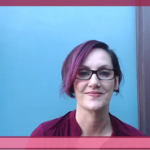When I began my psychotherapy private practice, I could always spot my new clients in the waiting area. I worked in a communal setting similar to WeWork, and shared the lobby with accountants, attorneys and startups.
One of the best aspects of meeting a new psychotherapy client was, and is, seeing the hope on their face as they enter your office. Sure the apprehension is there, but the combination of faith, relief and earnestness burns brighter.
Regardless of the reasons for reaching out, the underlying belief is always the same: Maybe things could be different in my life.
That belief is a wondrous thing. It implies trust in another person, a commitment of time, money and emotional energy, and heavy doses of vulnerability and patience, too.
Ethical imperatives during that first session include psychoeducation around the process of therapy: what it is, what it is not, what to expect, how you may feel worse initially, and the question on most every new client’s mind:
When will I feel better?
The duration of therapy is critically important to address. And hardly easy to quantify. We therapists have a way of dancing around that one with “some clients report feeling better after a couple sessions, while others require more intensive work,” or “your commitment and motivation will play an important factor in how long you’re in therapy.” Though the answer is vague, the timeframe murky, one thing remains the same:
Change always takes longer than you think.
Soon enough the optimism of those first sessions dwindles and reality sets in: change is hard work. Turns out the psychology behind self-control is like nailing jello to a tree for many of us.
Depending on which research study you cite on habit formation, change takes anywhere from 21 to 66 days when the desired behaviors are done repeatedly. The reassuring news is behaviors tend to become progressively easier the longer participants stick with them.
So how do you measure improvements in mental health when there’s no scale or lab work to record and track results?
The answer lies in getting psychologically curious and asking questions, rather than waiting for people or the environment to change.
When assessing goals, the age-old “when will I feel better?” may be better suited by “How will I recognize when my willpower is depleted by energy-sapping daily events, and how can I use mindfulness to help me stay the course?”
Or by focusing on patience.
“Am I rushing to make things happen because I feel stressed, anxious or depressed?”
And becoming comfortable with time. The concept of time trips up many an anxious and depressed soul. It’s about letting go of the need to control the future or resisting the urge to alter the past (neither of which is humanly possible). It’s acknowledging the clock is always moving, whether exasperatingly slow, or elusively, like quicksand.
Not exactly sexy steps, but neither is waking at 3 a.m. with racing thoughts about your relationship status, or your mom’s recent health scare.
Changing self-destructive behaviors, stopping automatic, negative thought patterns, and reversing unhealthy relationship habits are great goals. The thing to keep in mind about change is this: Change always takes longer than you think. Keep your head in the game and your heart hopeful that things could be different in your life.
If your serious about making healthy, long-lasting and meaningful changes to your life and with your relationships, Wired for Happy offers many affordable, convenient online options. Click here for Team Happy, a monthly membership program; go here for the 30-day Wellness Bootcamp, and get calm with Holistic Healing for Anxiety found here.
***
If you enjoyed this article, please spread the word on Facebook or Twitter.
Yours in mental health,
—Linda







